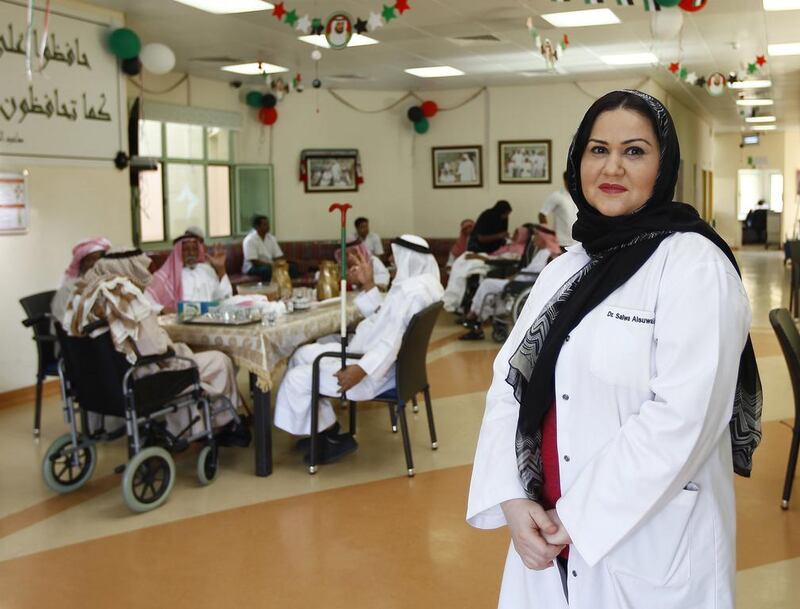ABU DHABI // The increasing number of elderly people in the UAE is pushing health care to its limits, experts say.
As medicine improves, mortality rates are dropping and life expectancy is increasing.
About 5 per cent of Emiratis are aged 60 years or more, it is estimated.
According to United Nations data, this proportion is expected to reach 11 per cent in 2032 and 19 per cent in 2050.
While the average life expectancy of a UAE person was about 53 years in the 1960s, the average now is 80 years for women and 74 for men.
Aisha Al Ali, a sociologist, believes there needs to be a change in social, health and legal policies to protect rights of this growing sector of society.
“Limited budgets, growing numbers of elderly patients in advanced stages of disease and a general lack of specialisation in geriatric medicine is leading to challenges of effective elderly care,” she says.
Sociologist Dr Mohammed Firoz says that the lack of elder care centres is directly related to a lack of data on the population.
“The vital statistics and demographic studies on the population and its components are meagre and outdated in the UAE. There has been no national census after 2005. Even when some information exists, it is difficult to access,” he says.
Dr Nahed Monsef, a consultant in family medicine and director of the Dubai Health Authority health affairs department, says that awareness of elderly care is improving.
“We realise that if we don’t take care of them now then there will be a huge cost of ignorance,” she says.
Elderly care is an integral part of DHA’s strategic plan for the next few years, says Dr Monsef.
However, limited resources mean the authority cannot cover care costs for elderly expatriates, but was considering it.
“Very soon, expatriate elderly care will also be covered by the DHA. At present we are focusing on UAE nationals and will expand in the near future,” she said.
Dr Salwa Al Suwaidi is head of the Family Gathering Centre in Dubai, a care home for elderly people.
She says there was a need for day care centres but not for long-term nursing homes.
“As a Muslim and Arab society, Emiratis are still responsible for their elders. We need day care centres where they can spend time when their families are busy with work,” she says.
Dr Al Suwaidi says that elderly patients are often ignored by healthcare providers.
“I have seen many care givers not dealing seriously with elderly problems. They need some extra care and affection. I feel that our elderly deserve a lot. Elderly patients can be rehabilitated, they can be better and you can help them,” she says.
Michael Davis, chief executive of Provita International Medical Centre, says that the private sector could play a crucial role in meeting the demand for elderly care in the emirates.
Mr Davis said more than half of Provita patients are elderly and need long-term medical support.
“Our goal is to give them more holistic approach, which means medical as well as social care,” he says.
Mr Davis believes that the Government takes good care of Emiratis, but expatriates had limited medical insurance programmes and coverage.
“There are many expatriates who have been born here or lived here for a long time,” he says.
“They might not have a UAE passport but the UAE has been their home for many decades. The insurance companies have to revisit their policies to make a much better programmes for expatriates, especially when they reach a senior age,” he says.
Mr Davis admits that it is not cheap to afford private elderly care.
Despite this, he believes private elderly care is much cheaper here than in the United States or many European countries.
akhaishgi@thenational.ae





